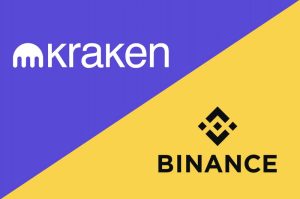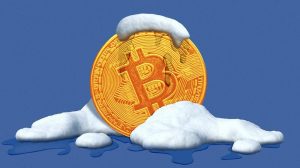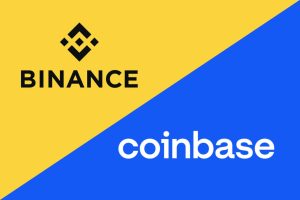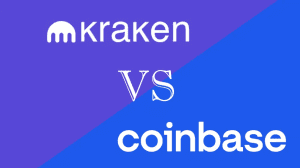Binance and BNB Explained – Beginner’s Guide

In the cryptocurrency world, Binance stands tall as a pioneering platform that has transformed the landscape of digital asset trading. Founded in 2017 by Changpeng Zhao (CZ), it has emerged as one of the largest and most reputable cryptocurrency exchanges globally.
This article provides an in-depth exploration of what Binance is, how it operates, and the trading mechanics on its platform. We also cover the innovation of the Binance Smart Chain, the BNB coin, regulatory aspects, and other additional services.
Guide Summary
Get the main talking points about BNB and Binance.
- Binance is a pioneering cryptocurrency exchange founded in 2017 by Changpeng Zhao, offering diverse digital asset trading.
- It provides a user-friendly interface, robust security measures, and extensive trading pairs.
- The platform offers various services beyond trading, including Binance Academy, Launchpad, Earn, and Card.
- BNB is the native token, offering trading fee discounts, ICO participation, dApp transactions, and real-world payments.
- Binance conducts coin burns to manage BNB supply and enhance value, with tokens permanently removed from circulation.
- The company faces regulatory challenges, including a lawsuit by the SEC alleging deception, customer fund misuse, and more.
What Is Binance?
Binance is a cryptocurrency exchange that facilitates the buying, selling, and trading of a vast array of digital assets. That includes well-established cryptocurrencies like Bitcoin and Ethereum, as well as emerging altcoins.
The platform prides itself on offering a user-friendly interface, robust security measures, and an extensive selection of trading pairs. It operates on a simple principle: connecting buyers and sellers within an efficient and transparent marketplace.
Trading on Binance involves a few key steps. First, users must create an account and complete the necessary verification processes. Then, users can fund their accounts with various cryptocurrencies or fiat currencies. The trading process involves:
- Selecting a trading pair.
- Specifying the desired order type (market, limit, or stop-limit).
- Executing the trade.
The company offers advanced trading features for experienced traders, including margin trading and futures contracts.
Introducing Binance Smart Chain (BSC)
Binance Smart Chain, launched in 2020, is a parallel blockchain network to the Binance Chain. It aims to support decentralized applications (dApps) and smart contracts, akin to Ethereum.
Moreover, BSC boasts impressive speed and lower transaction fees, which makes it appealing for developers and users seeking a more cost-effective alternative.
In February 2022, Binance Chain and Binance Smart Chain merged to form BNB Chain.
Other Services
In addition to trading and BNB Smart Chain, the platform offers an array of services, including:
- Binance Academy: An educational platform providing valuable blockchain, cryptocurrencies, and trading resources.
- Binance Launchpad: A platform for launching new tokens and projects through token sales.
- Binance Earn: A service that enables users to earn interest or rewards by lending their cryptocurrencies.
- Binance Card: A payment card that allows users to spend their cryptocurrencies at merchants accepting Visa.
What Is BNB?
At the heart of the Binance ecosystem lies the native token BNB. Initially launched as an ERC-20 token on the Ethereum blockchain, BNB transitioned to the native blockchain and now also operates on BNB Chain. BNB serves multiple purposes, including but not limited to:
- Trading fee discounts: Users can use BNB to pay trading fees on the platform and subsequently enjoy substantial discounts.
- Token sales: BNB is often used to participate in initial coin offerings (ICOs) hosted on the Binance Launchpad.
- DApp transactions: BNB powers transactions within the BSC ecosystem of dApps.
- Travel and more: Some merchants accept BNB for payments, expanding its real-world utility.
BNB Burning
To manage the supply and enhance the value of BNB, the company periodically conducts “coin burns.” This process involves permanently removing a certain number of BNB tokens from circulation. Coin burns occur quarterly, sending the tokens to an irrevocable address. Therefore, they can contribute to increased scarcity and potential price appreciation of BNB over time.
Binance vs. SEC
The US Securities and Exchange Commission (SEC) filed a lawsuit against Binance and its CEO, Changpeng Zhao. The lawsuit alleges a complex “web of deception,” casting a shadow over the exchange’s operations and causing a ripple effect throughout the cryptocurrency landscape.
The Allegations
The SEC’s lawsuit contains allegations that paint a troubling picture of Binance’s operations. The charges include:
- Artificial inflation of trading volumes: The SEC asserts that Binance artificially inflated its trading volumes and creating a deceptive impression of market activity and liquidity.
- Misuse of customer funds: the platform stands accused of diverting customer funds for unauthorized purposes, thus violating the trust of its user base.
- Lack of US customer restrictions: The lawsuit claims that the exchange failed to enforce restrictions on US customers, despite regulatory requirements.
- Deceptive market surveillance claims: According to the SEC, Binance misled investors by providing false information about its market surveillance controls.
- Control over customer assets: Binance and its CEO allegedly exerted secretive control over customers’ assets, allowing for unauthorized use and diversion of investor funds.
- Evading US securities laws: The SEC accuses the company of creating US entities as part of an elaborate scheme to evade US federal securities laws.
Binance’s Response and Defense
In response to the SEC’s lawsuit, Binance issued a strong defense, vowing to protect its platform “vigorously.” The exchange emphasized its non-U.S. status, suggesting that the SEC’s jurisdictional reach is limited. Furthermore, the company asserted that user assets across its platforms remain secure, seeking to reassure its users amidst the unfolding legal battle.
Binance in Europe
As regulatory dynamics evolve, the crypto exchange has strategically adjusted its European operations. The company’s activities have been under scrutiny by various European regulatory bodies, prompting it to make noteworthy decisions.
Withdrawal of Permissions in the UK
Binance Markets Limited, a unit of the exchange based in the UK, recently requested the cancellation of several permissions granted by the Financial Conduct Authority (FCA), the top financial regulator in the UK. A company spokesperson said that Binance deemed these permissions unnecessary as it had not engaged in or offered them within the UK.
Hence, the decision to cancel them aligns with the FCA’s recommendations and reflects Binance’s proactive approach to regulatory compliance.
In a statement, the spokesperson clarified that the cancellation has no impact on Binance.com as the platform does not provide crypto services to UK consumers. Instead, it operates on a reverse solicitation basis.
Strategic Shift in Response to EU Regulation
Binance’s recent actions also reflect its response to the European Union’s new regulatory framework, the Markets in Crypto Assets (MiCA) regulation. As MiCA comes into effect, Binance has recalibrated its operations and withdrawn its registration with a regulatory body in Cyprus.
This strategic move indicates that the platform is narrowing its focus to fewer European jurisdictions, adapting its approach to comply with evolving regulatory norms.
Additionally, Binance announced its exit from the Netherlands after facing challenges in obtaining regulatory approval within the country.
Frequently Asked Questions
Get more information on Binance and BNB.
Is Binance a safe platform for trading?
Binance employs state-of-the-art security measures, including two-factor authentication (2FA) and cold storage of funds, making it a relatively secure platform. However, users should exercise caution and follow best practices to safeguard their accounts.
What is the difference between Binance Chain and Binance Smart Chain?
Binance Chain focuses on fast and secure trading, while Binance Smart Chain supports smart contracts and DApps with lower fees. Both services merged under BNB Chain.
How does Binance conduct coin burns?
Binance performs coin burns by sending a specific number of BNB tokens to an irrevocable address, reducing the overall supply.
Is BNB the only cryptocurrency on Binance?
No, the exchange supports various cryptocurrencies for trading alongside BNB.
How does the recent regulatory scrutiny impact Binance’s European operations?
The recent regulatory scrutiny has prompted the crypto firm to adjust its European operations strategically. Its UK unit has voluntarily withdrawn specific permissions granted by the Financial Conduct Authority (FCA). Additionally, the company has recalibrated its operations to align with the EU’s new Markets in Crypto Assets (MiCA) regulation.
Binance and BNB Explained – Last Words
Binance has undeniably shaped the cryptocurrency landscape with its innovative platform, diverse services, and commitment to user experience.
From seamless trading experiences to pioneering the BNB Chain and nurturing the growth of the BNB coin, the company continues to be a prominent force in the ever-evolving world of blockchain and cryptocurrencies.
As the industry progresses, Binance’s adaptability and responsiveness to regulatory changes will be crucial in maintaining its position as a leading cryptocurrency exchange.
Please note that cryptocurrency investments carry inherent risks, and it is essential to conduct thorough research and seek professional advice before engaging in any financial transactions.





